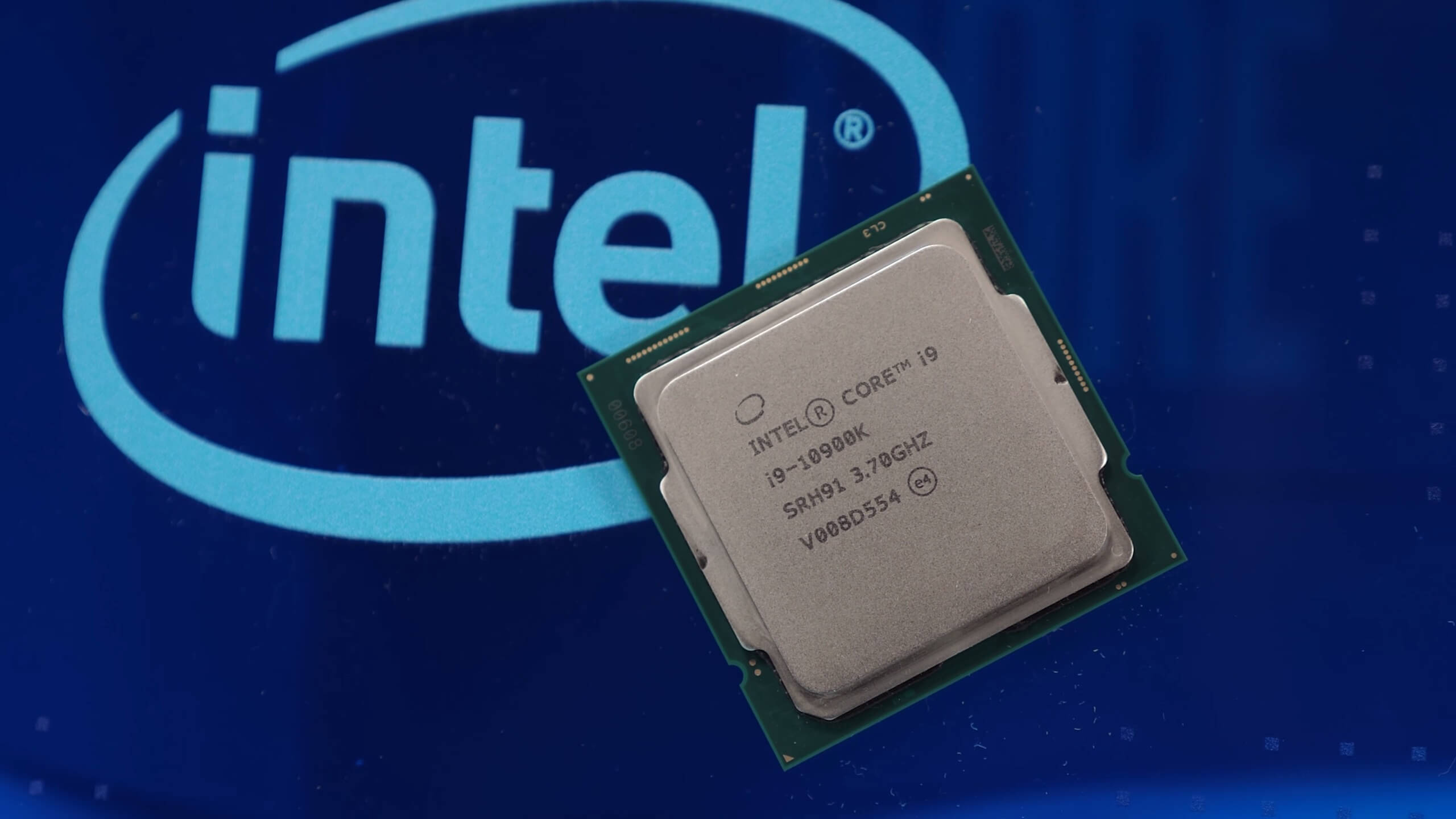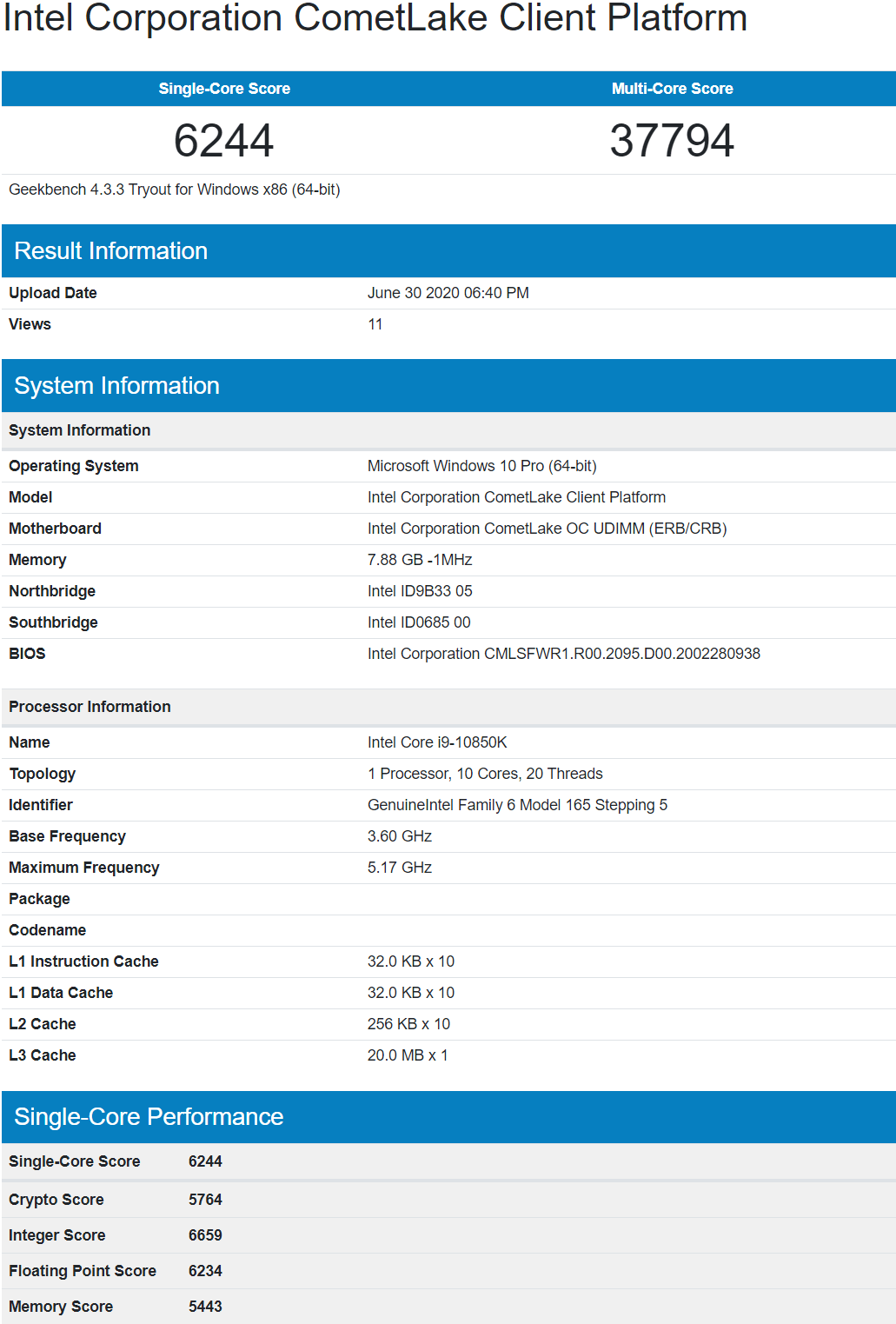Rumor mill: If you’re considering a 10-Core Comet Lake-S chip but don’t want to pay over $500 for a Core i9-10900K, a cheaper option could be on its way. According to a Geekbench entry, a Core i9-10850K is in the works, and it sounds very similar to the flagship processor.

The news comes from Twitter user and regular leaker Tum_Apisak, who posted a link to the Geekbench result for the Core i9-10850K. Assuming it’s real, the chip has the same 10-core/20-thread configuration as the Core i9-10900K while also boasting 20MB of L3 cache and 256KB of L2 cache per core. No mention of the TDP but expect it to be around 125W.
i9-10850K
— APISAK (@TUM_APISAK) July 3, 2020
1 Processor, 10 Cores, 20 Threads
GenuineIntel Family 6 Model 165 Stepping 5
Base Frequency3.60 GHz
Maximum Frequency5.17 GHzhttps://t.co/Qv5TzYdcxGhttps://t.co/CRaDXBLO7R
The Core i9-10850K managed a single-core score of 6244 and multi-core score of 37794, which is very close to what the Core i9-10900KF (disabled iGPU) achieves.
The only real difference between the two chips are the clock speeds. The upcoming CPU's base clock is down as 3.6 GHz, making it just 100 MHz slower than the Core i9-10900K. It can boost up to 5.18 GHz, whereas its sibling can hit 5.3 GHz with Thermal Velocity Boost (TVB), suggesting the Core i9-10850K lacks this feature.
There’s always a chance that this will be an OEM-only chip reserved for device manufacturers, but if it is coming to the retail market, expect it to be around $30 to $50 cheaper than the other 10-core Comet Lake-S CPU.
Assuming the Core i9-10850K is going to be a consumer product, it's perhaps Intel’s response to AMD’s 3600XT, 3800XT and 3900XT parts, which are due to launch tomorrow and sell for $249, $399, and $499, respectively.
https://www.techspot.com/news/85886-ten-cores-less-intel-core-i9-10850k-discovered.html
